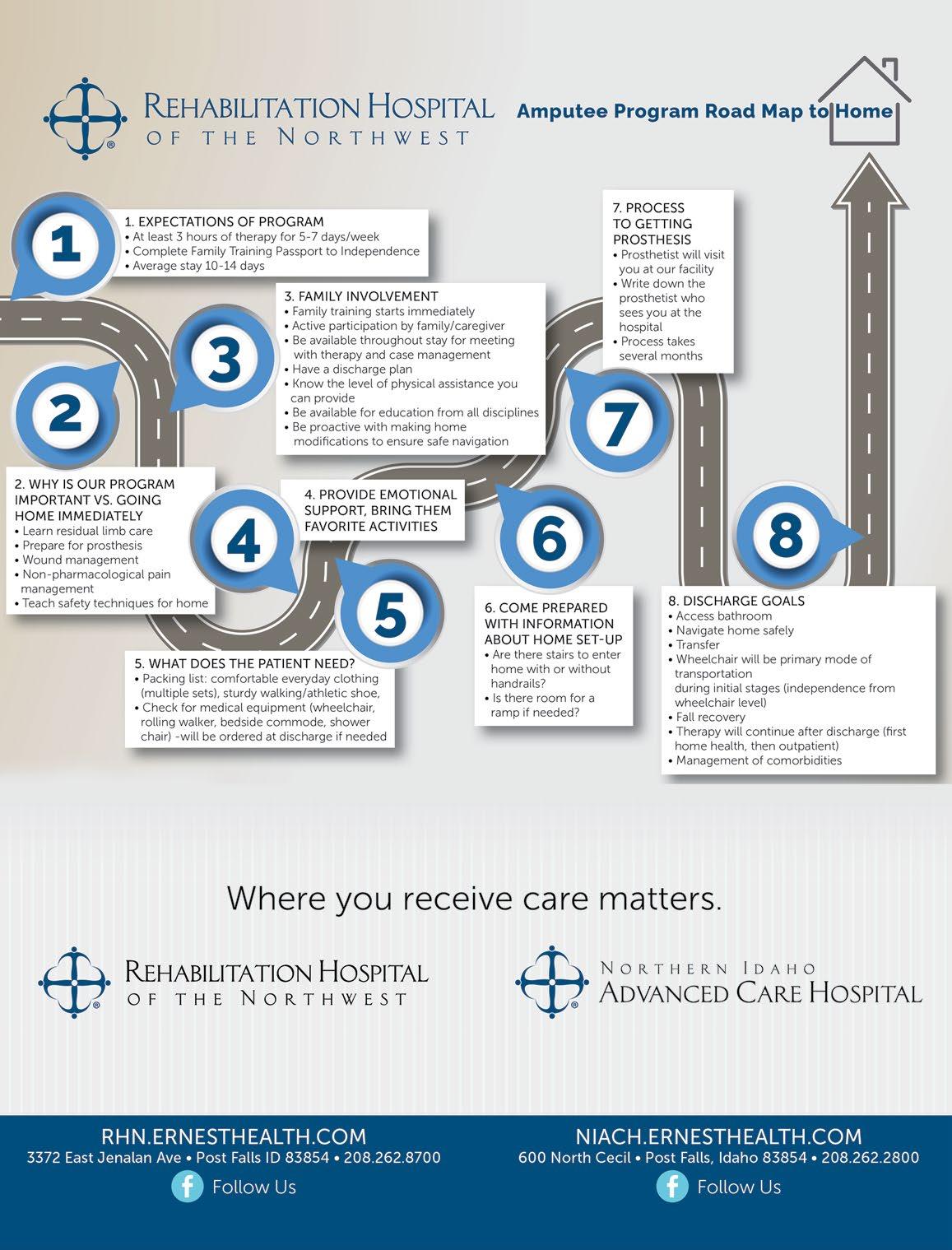
2 minute read
Amputation, a Life-Changing Event
a Life-Changing Event
by Heidi Frazier, Director of Marketing and Business Development, Rehabilitation Hospital of the Northwest
Advertisement
Two legs, two arms, ten fingers and ten toes are physical attributes that many people take for granted. Unfortunately, more than 2 million Americans live with limb loss or due to amputation, and more than 28 million are at risk of amputation surgery. Fortunately, there are many organizations to support and empower Amputees to help them achieve their greatest potential.
Factors that lead to an increased risk of an amputation include: • Diabetes or High blood sugar levels • Smoking • Nerve damage in the feet (peripheral neuropathy) • Calluses or corns • Foot deformities • Poor blood circulation tot he extremities (peripheral artery disease) • A history of foot ulcers • A past amputation • Vision impairment • Kidney disease
People with amputations have special physical, mental, and social conditions during their lifetime. There are many things that can be done to prepare mentally and physically for an elective amputation surgery, so doing research ahead of time can help patients choose a team that has experience with amputations. Getting your surgical and rehabilitation team in place prior to surgery can help improve confidence and outcomes. Your team may include a primary care provider, surgeon, rehabilitation and therapy team, and your prosthetist.
Research has shown that the first several months of rehabilitation are crucial to a patient’s long-term success as an amputee. Depending on the individual’s goals, a comprehensive inpatient and outpatient therapy schedule is the best way to achieve activity levels in a matter of months. Recovering from an amputation is most often done in an inpatient setting like an acute inpatient rehabilitation hospital. Inpatient rehabilitation hospitals use a comprehensive approach to ensure all needs of the individual are being met while they participate in intense therapy and caregiver or family training to prepare to discharge home. Inpatient rehabilitation will provide education on residual limb care, preparing for a prosthesis, wound management, and pain control techniques as well as safety techniques for returning home and when in the community.
An amputation is a life-changing event and requires a new approach to life in a whole new way. Choose therapists that are experienced in helping adapt to new norms and working to overcome the challenges that arise after an amputation. Providing emotional support and access to favorite activities or support groups through programs like the Amputation Coalition or the US Department fo Veterans Affairs should be considered part of a robust limb loss program. Your amputation team can provide the education and support to help live a healthy, productive life. Rehabilitation Hospital of the Northwest is a 30-bed, free-standing rehabilitation hospital providing the highest level of inpatient rehabilitative services available. Patients are our priority. We are passionate about patient care and consider it a privilege to be able to provide services to patients and their family members throughout Idaho and surrounding states. Our efforts have earned us national recognition as a healthcare leader. The hospital is the first hospital in Idaho to earn certification by The Joint Commission. For more information, call 208-262-8700 and visit RHN.ernesthealth.com.











